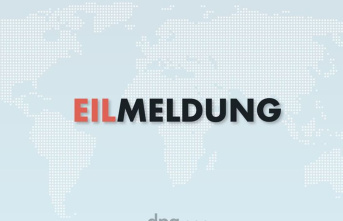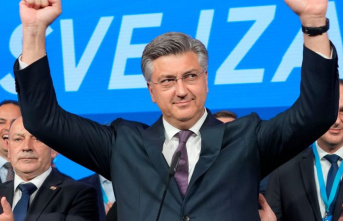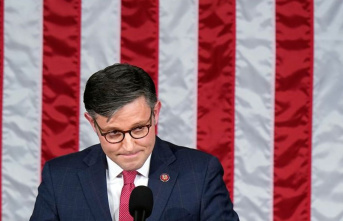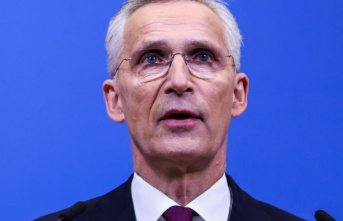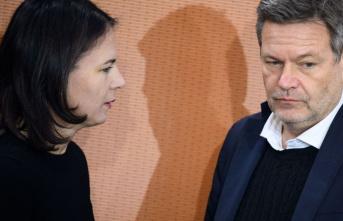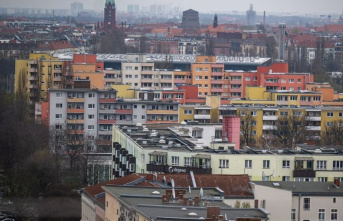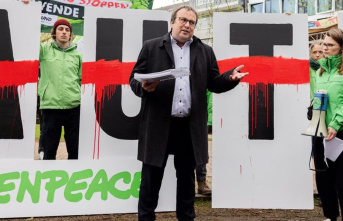Motorway construction, heating dispute, dear money: The traffic light coalition has numerous disputes in its luggage when it withdraws to the baroque castle of Meseberg in Brandenburg in the next two days.
Relaxed talks behind closed doors seem necessary, because a week and a half before an important budget decision is made, the atmosphere between the SPD, the Greens and the FDP is more tense than it has been for a long time. The two smaller coalition partners, in particular, repeatedly clash in public, and the FDP's defeat in the Berlin elections increased the pressure. Get together, that could be the motto of the traffic lights in Meseberg.
There is no trace of the problem issues on the official agenda of the cabinet meeting on Sunday and Monday. There are many more points such as "Economic prospects for Germany and Europe at the turning point" with EU Commission President Ursula von der Leyen or "Roadmap Energiewende 2030" and data policy.
But such a retreat with an overnight stay in the guest house of the federal government is also an opportunity to at least come closer in disputed issues. Government spokesman Steffen Hebestreit put it this way last week: "Of course, on the sidelines of these meetings, in the peace and quiet and in the time that you have, there is also the opportunity to discuss one or the other topic on the sidelines where there could be slight friction , also to clarify with each other." One thing is clear: Meseberg is a kind of intermediate station. Decisions are more likely to be made at a coalition committee at the end of March.
Household austerity round
One reason for the irritable climate is that FDP leader Christian Lindner will present the key points for next year's budget on March 15. As usual, his cabinet colleagues want more money than the finance minister is willing to give them.
The additional requests should add up to 70 billion euros. Rising interest rates, the debt brake that has to be complied with again and the FDP's refusal to bolster income through tax increases restrict the scope. The budget consultation is the "most demanding in recent years," says the parliamentary director of the SPD parliamentary group, Katja Mast.
It is actually already clear that the new Defense Minister Boris Pistorius (SPD) should get more money. However, the Greens worry that there will not be enough left over for their social and climate policy projects. Most recently, a sometimes smug exchange of letters between Lindner and Economics Minister Robert Habeck (Greens) made the rounds.
Basic child security
The dispute over the basic child security agreed in the coalition agreement is often mixed up with the budget dispute - this is actually about money for 2025, i.e. the follow-up budget. The SPD, Greens and FDP have agreed that services from child benefit to child allowance and financial support for school trips should be bundled and better received by those entitled. Whether that should also mean a billion-dollar financial increase is disputed between the Greens and the FDP.
heaters
The dispute over oil and gas heating is probably the freshest in the coalition. The partners had actually already agreed last year that from 2024, if possible, only new heating systems that are operated with 65 percent renewable energies may be installed. The Ministry of Economic Affairs has now made details of the plans public - and has drawn violent protests from the FDP. The liberals fear that the regulation for more climate protection will overwhelm many homeowners financially and drive up construction costs.
Combustion engines out
Under pressure from the federal government, the EU has postponed its vote on phasing out combustion engines for newly registered cars from 2035. The FDP is demanding a proposal from the EU Commission on how climate-neutral synthetic fuels can be used. The SPD is annoyed and accuses the liberals of wanting to save the combustion engine while the industry is much further along. The climate goals in transport cannot be achieved with e-fuels.
highways
Whether motorways should be built faster is a constant dispute in the coalition. The FDP demands this and refers to the prognosis that freight traffic on the road will grow strongly in the long term. The Greens reject an acceleration and call for more commitment to the climate goals.
Scholz and Baerbock
Between Chancellor Olaf Scholz (SPD) and his Foreign Minister Annalena Baerbock, diplomacy is jerky. Many in the SPD do not like the fact that the Green politician often speaks plain language internationally - while Scholz prefers to regulate many things in back rooms.
When Baerbock called on the Council of Europe for Western allies to stand together, she said: "We are fighting a war against Russia and not against each other." Scholz felt compelled to immediately capture and clarify this statement: "This is a war between Russia and Ukraine." The German strategy for dealing with China is also making little progress.
In the past year, one can concede that the traffic light was driven by acute crisis management. A few days before the closed meeting, however, Scholz made a government statement in the Bundestag that was no longer mainly characterized by arms deliveries, fears of recession, rescue packages and fears of inflation.
A new phase could begin for the traffic light government, in which it is again more about the projects from the coalition agreement. Some of its members wish that this would also be accompanied by a return to the beginning of traffic lights, when contentious issues were primarily fought out behind the scenes.


